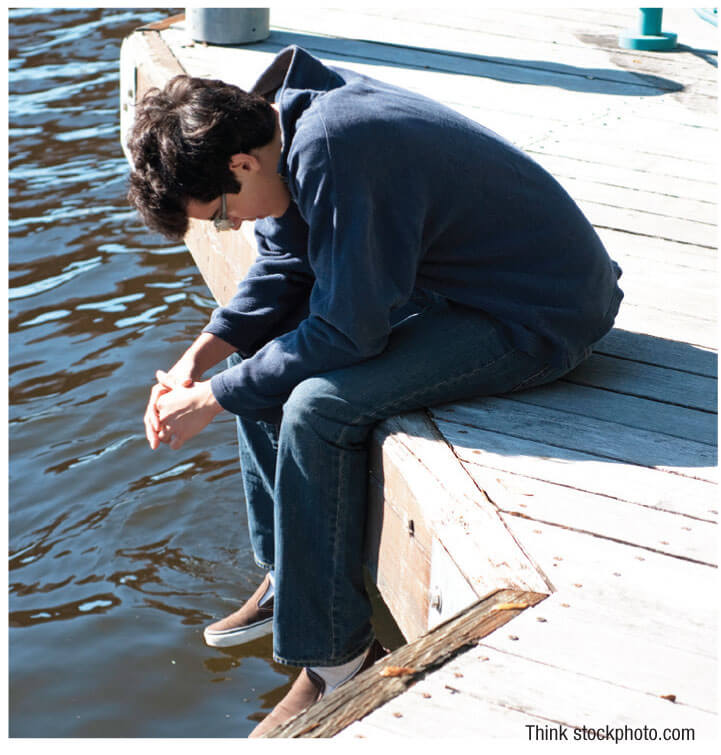
Conscience is our awareness of what is right and wrong — a moral sense of what God expects, of what harms and breaks relationships and what gives life and builds up the human family. Conscience helps us judge what is right and wrong when we face choices in our lives.
“Conscience is the most secret core and sanctuary of a human person,” the bishops of Vatican II wrote in the Church in the Modern World (#16).
No one is born knowing right from wrong. Our parents begin teaching us the difference between loving and hurtful actions. Our parents join together with the Christian community to teach us what is good and what is evil, what actions build up the community and what actions tear it down.
A Christian conscience takes its spirit from Jesus’ teachings; for example, the two commandments he considers greatest: to love God with one’s whole heart, mind, and strength and one’s neighbor as one’s self. Jesus demonstrates what is right and wrong for his followers. Washing his disciples’ feet like a servant is right. Forgiving sins and healing sickness are right. Speaking the truth to his opponents is right.
The choices each of us consistently makes and the actions each of us regularly does build up moral character. Our decisions shape who we become.
Conscience is more than knowing rules and the commandments. Conscience is really a vision of who I am and want to be—how I live. I want my life to matter to others, so I volunteer to tutor. I care about Earth and work with the crew planting sedges and other plants around a pond where the water from our school parking lot drains. I have seen kids my age working in sweatshops, so I buy union-made clothes.
Conscience is practical. It is my capacity to reason about how to take responsibility for my vision of who I am and want to be. It is my capacity to reflect on my actions and judge day to day what is good.
Using conscience to decide what is right is a process that includes at least four steps.
1 Focus. What is the problem I face? What is it I must decide?
In Sarah’s case she has to decide what to do with the child growing within her. She wants to go to college. At first she can’t imagine facing her parents. Her boyfriend is too troubled to marry.
2 Discern prayerfully. What do I want to do? What are my options? What is the right thing to do?
At first Sarah considers an abortion. But she sees the Church’s commitment to life on a billboard and notices people with babies in strollers.
To discern is to weigh options prayerfully, to sort out in the here and now what is right. Prayer makes God a partner in making decisions and opens us to a bigger picture than our own. Sarah sits for hours, crying and thinking, before like the prodigal son, she decides to trust the relationship she has with her parents.
3 Consult. What do the people I value most have to say? What does the Church teach is right and why? What wisdom does the bible hold in regard to my choice? What does Jesus teach? What consequences will my choices have?
When Sarah talks to her brother, her reality changes. She consults her family. When her mother holds her, Sarah finds the strength and support to have her baby. Many young people misjudge how parents’ will react, thinking they will reject or disown them rather than embrace them.
Sarah also consults with the baby’s father about the baby’s future. Together they choose an adoptive family, based on Sarah’s family experience and values.
4 Choose, act. When conscience has helped us discern what is good, we choose and act. Sarah chooses an open adoption to be sure her son thrives.
Conscience is a judgment of reason by which the person recognizes the moral quality of a concrete act.
Catechism of the Catholic Church #1796
